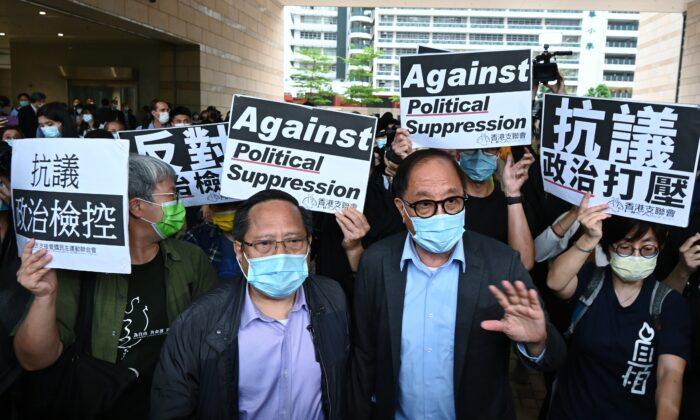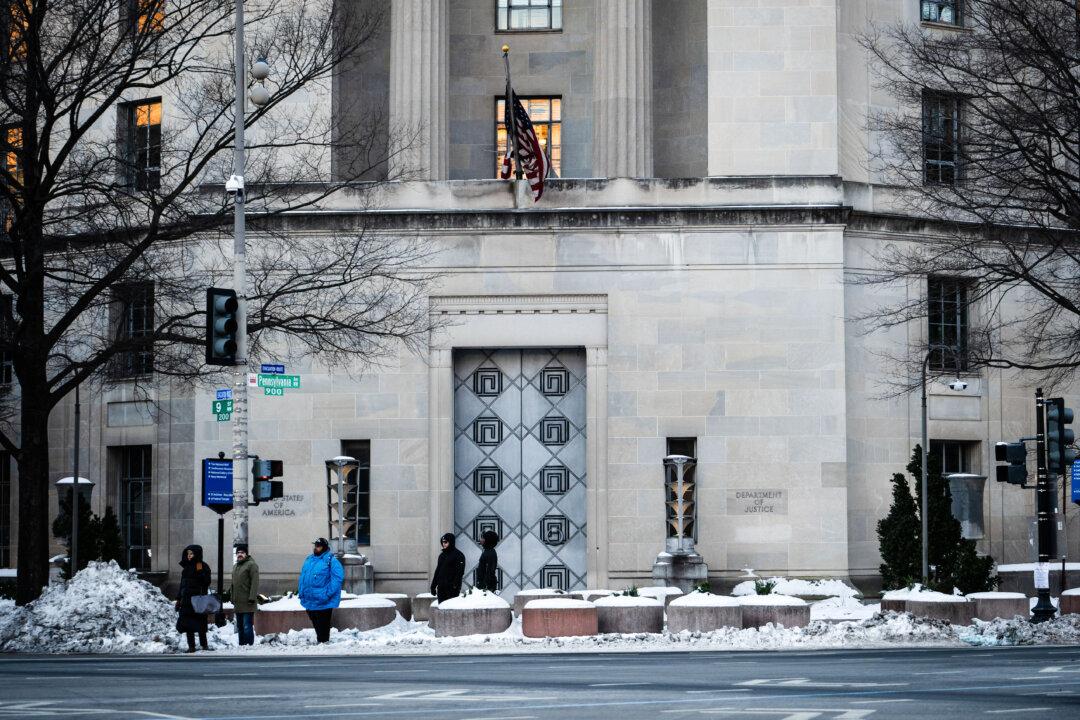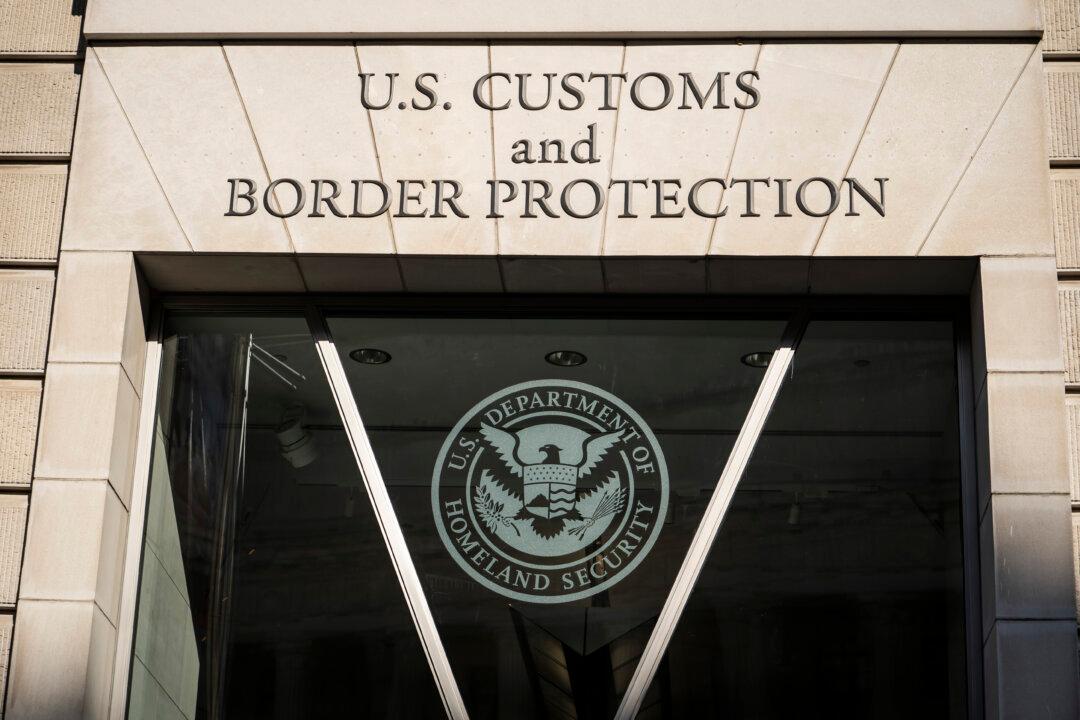Lai, 72, the owner of local paper Apple Daily, was found guilty in two separate trials for unauthorized assemblies on Aug. 18 and Aug. 31 2019, respectively. He received a 15-month sentence for the first, reduced by three months in mitigation, and an eight-month sentence for the second, of which he will serve two.
Lai was also slapped with two additional charges Friday, one under the national security law accusing him of conspiring to collude with foreign powers and another accusing him of helping local activists to escape the city.
Prior to sentencing, Lai was already being held on other charges, including a previous charge of foreign collusion to intervene in the city’s affairs—a new crime under a sweeping national security law that Beijing imposed on the city in 2020.
Lee Cheuk-yan, 64, former lawmaker and chairman of Hong Kong Alliance in Support of Patriotic Democratic Movements of China, was sentenced to a total of 14 months in prison for his participation in the two August 2019 marches.
Lawyers Albert Ho and Margaret Ng both had their 12-month jail sentences suspended for two years. Former lawmaker Leung Kwok-hung was sentenced to 18 months, while another former legislator, Cyd Ho, was given a jail sentence of eight months.
Two other former lawmakers, Au Nok-hin and Leung Yiu-chung, who previously pleaded guilty, were also given jail sentences. Au got 10 months while Leung’s eight-month jail term was suspended for one year.
In a separate case, former lawmaker Yeung Sum, was sentenced alongside Lai and Lee Cheuk-yan for their participation in the unauthorized assembly on Aug. 31, 2019, although his eight-month sentence was suspended for a year.
“I’m ready to face the penalty and sentencing and I’m proud that I can walk with the people of Hong Kong for this democracy,” Lee Cheuk-yan said ahead of the court session, as supporters held up signs condemning political persecution. “We will walk together even in darkness, we will walk with hope in our hearts.”
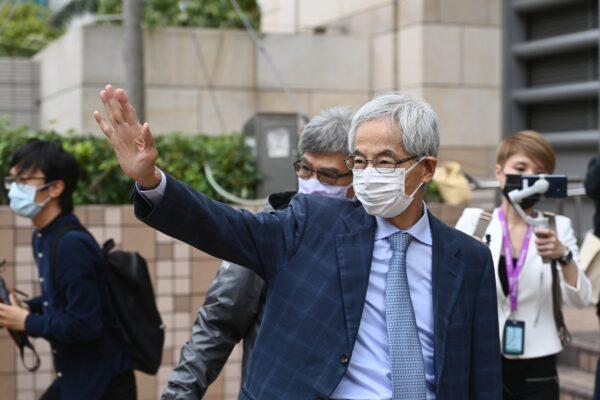
On Aug. 18, 2019, a rally at Victoria Park organized by the local pro-democracy group Civil Human Rights Front drew more than 1.7 million Hongkongers in protest against an extradition bill that would allow the Chinese Communist Party to send people charged with a crime in Hong Kong to China for trial. The police approved of the rally but did not approve an ensuing march.
“The Chinese Communist Party continues to impose its authoritarian grip on Hong Kong, and the imprisonment of pro-democracy leaders is just the latest in a long history of their repression and censorship,” stated Sen. Mitt Romney (R-Utah), the ranking Republican on the Senate Foreign Relations Committee’s subcommittee on East Asia, according to a statement.
Romney added: “We call for the immediate release of Jimmy Lai, Lee Cheuk-yan, and the other activists sentenced today and stand with the people of Hong Kong in their fight for freedom and democracy.”
Canadian MP Jenny Kwan stated: “Canada must immediately act to bring in asylum measures for Hongkongers who fear political persecution.”
Ng, a barrister, discharged her lawyers and delivered her mitigation speech herself.
“When the people, in the last resort, had to give collective expression to their anguish and urge the government to respond, protected only by their expectation that the government will respect their rights, I must be prepared to stand with them, stand by them and stand up for them,” Ng said.
She added: “Otherwise, all my pledges and promises would be just empty words.”
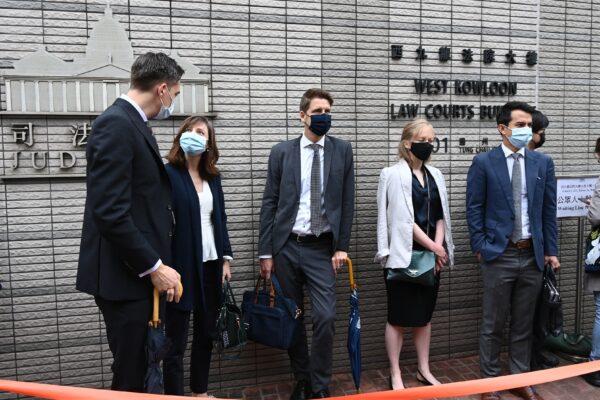
When Hong Kong was transferred from British to Beijing rule in 1997, the Chinese Communist Party (CCP) had promised to allow the city autonomy and freedoms not enjoyed in the mainland for 50 years, under a framework known as “one country, two systems.” However, in the past year, the CCP has introduced measures drastically curtailing freedoms and democracy in Hong Kong, that many fear is making the city no different from the mainland.
The national security law punishes vaguely defined crimes such as subversion and secession with a maximum penalty of life imprisonment.
“With the destruction of ‘One Country, Two System[s]’ and Rule of Law and in its place Rule of Fear, Hongkongers have to learn to live and survive in a suppressive environment and still retain the will to resist,” Lee said in his testimony.
